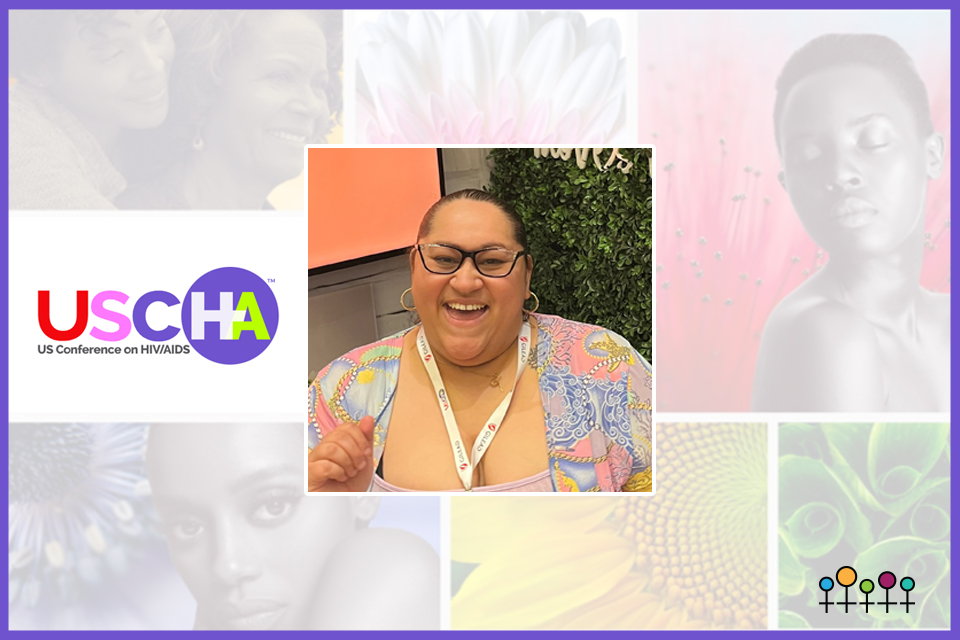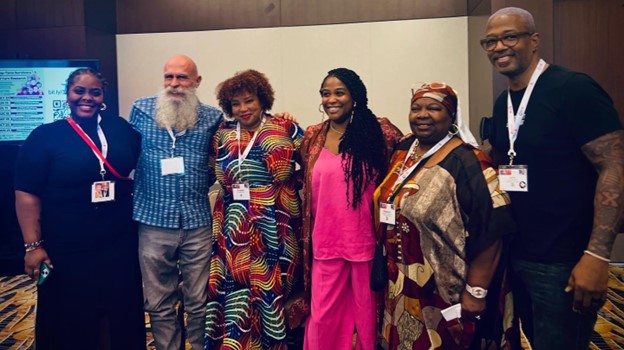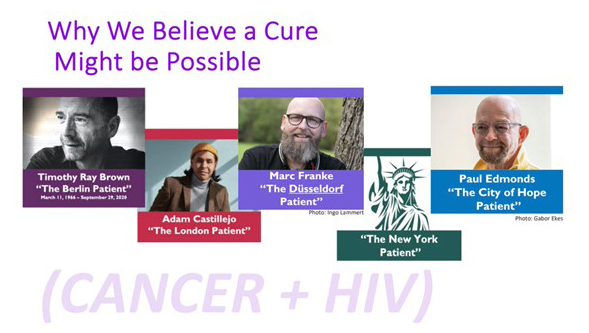By Marissa Gonzalez
The 2023 United States Conference on HIV/AIDS (USCHA 2023) returned to Washington, DC, this September 6 – 9. Members of The Well Project's community were involved in the conference on various levels, and several of them wrote blog entries, session summaries, and other reflections on their experiences at the US's largest annual HIV community convening.
I attended the session "Long-Term Survivors and HIV Cure Research – A Community Perspective" at USCHA 2023 in support of friend and The Well Project staff member Bridgette Picou, who was on the panel with other community advocates living and growing older with HIV.
The Reunion Project (TRP), the organization that put on this topical conversation, defines "long-term survivors" as:
- Living with HIV for 10 years or more
- Living with HIV since the time when there was no effective treatment (before 1996) – this is often the definition used in HIV cure research
- Living with HIV since birth or from a very early age (lifetime survivors)
- TRP also welcomes people who are not living with HIV to join their network or workgroups as allies, many of whom have been involved with or affected by HIV for many years
Upon hearing the title, I expected to hear about some form of injection as a cure, similar to a vaccine. But I was quite mistaken. Panelists talked about all kinds of details and dynamics around finding a cure for HIV.
HIV cure is defined into two main cure pathways:
- "Complete" = HIV is completely gone from the body
- HIV control without daily drugs = the ability to control HIV without HIV antiretroviral treatment
TRP noted that one reason finding a cure has seemed difficult is due to where HIV presents in the body, specifically the multitude of locations, including:
- Brain
- Lymph nodes
- Peripheral blood
- Gut
- Bone marrow
- Genital tract
Reasons we need a cure:
- It is not possible to get HIV treatment to the over 38 million people with HIV in the world for their entire lives
- We cannot overcome the challenges of successfully taking drugs over your entire life
- Drug resistance, toxicities over time, and stigma associated with daily HIV meds are still realities
The history of individuals who have been cured of HIV was shared. They all had one commonality outside of their HIV diagnosis: a leukemia diagnosis which resulted in a stem cell transplant. (For reasons not fully relevant to this writing, I was unable to stay at the session past this point, as this part of the conversation became triggering for me given a sensitive time in my personal life regarding this course of treatment.)
There was also a mention of "exceptional elite controllers" – individuals living with HIV who control HIV without HIV medications or disease progression for more than 25 years; two individuals were noted.
Ultimately when we consider what matters most in seeking out a cure, as noted in the session, it is important that the cure be:
- Safe
- Simple
- Affordable
- Scalable
- Complete
- Durable
- Preventative of transmission to and from others
So the big-picture takeaways and questions for me are:
- Stem cell transplant is not an ideal cure method due to the many complications that could ultimately present after transplant
- What exactly does an individual classified as an exceptional elite controller have that others do not and/or what makes it difficult for this trait to be the driver behind finding a cure?
More from The Well Project on the 2023 United States Conference on HIV/AIDS (USCHA 2023)
- Lifetime Survivors Are Still Here ... and We're Organizing! (TheBody) by Grissel Granados
- Harnessing the Healing Power of Community through Honoring our Experience by Heather O'Connor
- Reclaiming Our Time From HIV Stigma (TheBody) by Bridgette Picou, LVN, ACLPN
- I'm a Lifetime Survivor — Put Some Respect on My Name by Kimberly Canady-Griffith on A Girl Like Me
- No One Told Me USCHA Was the Equivalent to the Grammys! by Justine Davenport on A Girl Like Me
- USCHA 2023: "We Are All HIV Possible" by Marissa Gonzalez on A Girl Like Me
- SPEAK UP by Marcya Gullatte on A Girl Like Me
- My First USCHA Experience by HIVictorious on A Girl Like Me
- USCHA 2023: My Girls by Heather O'Connor on A Girl Like Me







